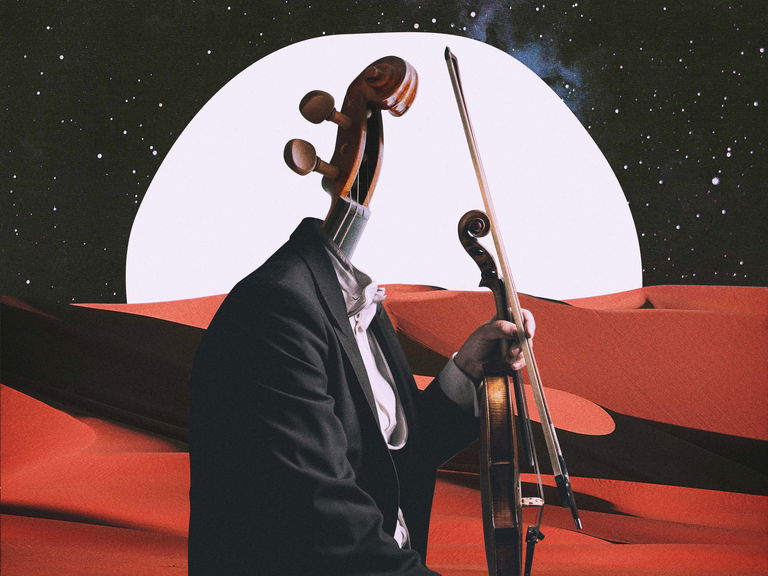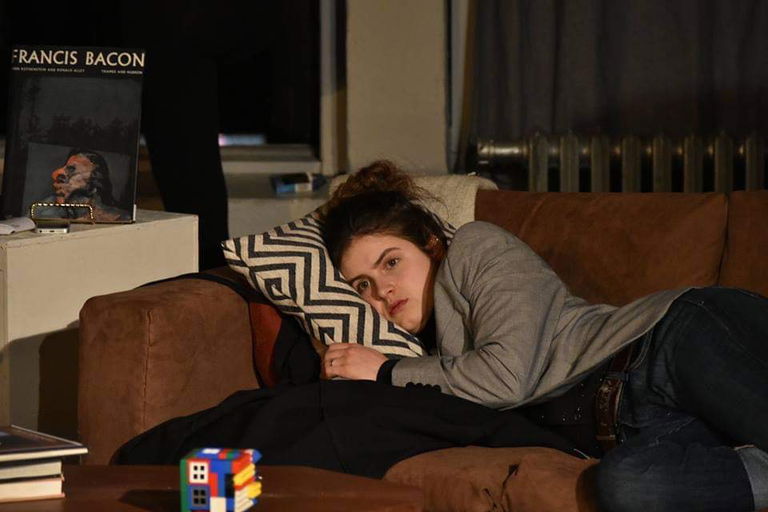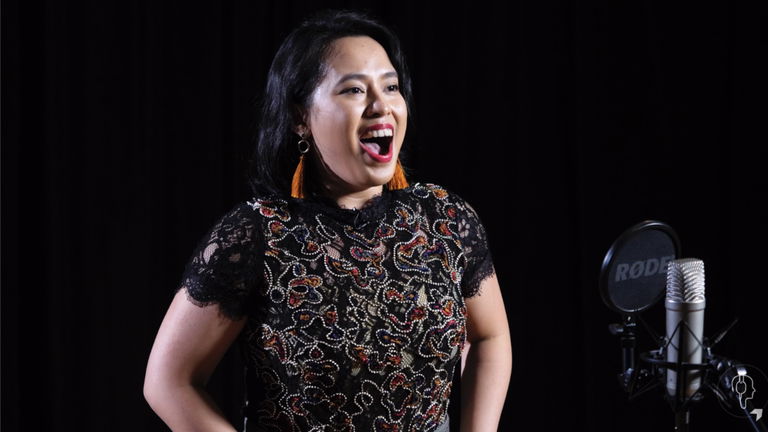
Recalibrating: A Look At Opera InReach
Anya Wassenberg for Culture Days
Jun 29, 2021
When it comes to Opera InReach, the organization’s name says it all. Pre-pandemic, breaking apart opera’s white hegemony was on the minds of its co-founders Daevyd Pepper and Andrew Adridge.
“Opera InReach was born out of the BLM movement,” explains Adridge.
There’s no denying that opera, as the pinnacle of Eurocentric high culture, carries with it all manner of colonialist and classist baggage. For centuries, it was seen not only as the exclusive preserve of white performers and audiences, but of a certain upper class of the same.
In early 2020, Adridge and Pepper were in the midst of planning a concert with performers that were reflective of our more diverse society and culture, in particular, to feature BIPOC and LGBTQ2S artists, and artists from other under-represented groups. Then the pandemic hit, and shifted the focus entirely online.

There, however, along with continuing to produce diverse performances and events online, the digital world represented an opportunity – with education as the key.
By the end of the summer, the concept began to expand west from Toronto/Ontario to include teams in Manitoba, Alberta, and British Columbia. Each team consists of a coordinator and several mentors.
“It turned into a collective,” Adridge explains. The focus is to provide a combination of digital and in-person educational modules that open up the world of opera in ways that today’s students can relate to.
Education Is The Key
Music education itself is becoming rarer and rarer at the public school level. “A lot of time, music education is left up to chance,” Adridge notes.
Nolan Kehler is the Coordinator for Manitoba. “The opera scene in Canada is so small,” he points out. “The thing that excites me is getting opera in reach of people outside urban areas. That’s the challenge and the opportunity,” he says. “What does opera mean for rural areas?”
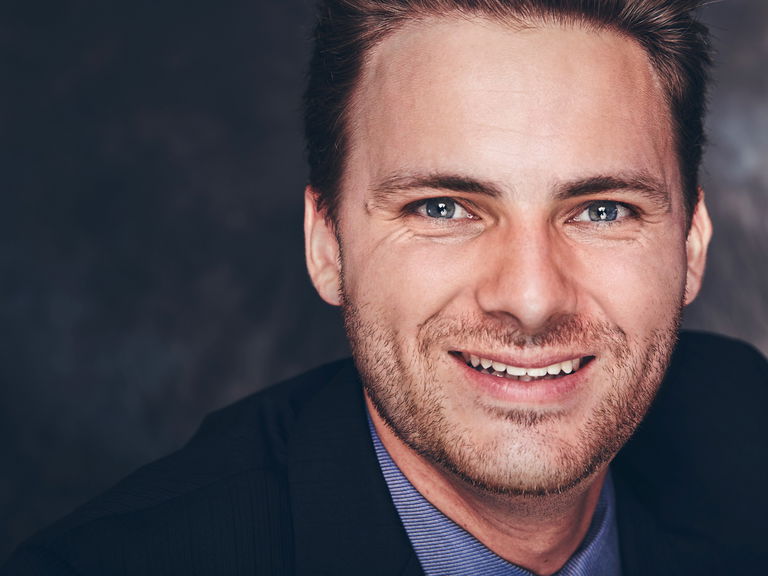
Part of the problem lies with opera as it has developed. “With opera, it tries hard to distance itself from education,” Pepper says. He points out that some performing opera singers even consider it something of an embarrassment to be known as a teacher as well as a performer.
It’s part of the elitism that has cut opera off from the ordinary lives of most people. “A lot of people have that attitude,” he says. “Education should be a top priority.”
Renee Fajardo, Ontario Coordinator, grew up in the Philippines, where her first experiences of opera were quite different than most here in Canada. “My experience of it there was very community based,” she says.
Even attending an opera in a glittering theatre is an intimidating experience for many. “Access – it’s everything,” Fajardo says. “It’s important to create a space where people can just enjoy being there. The important thing is to make them feel like it can belong to them.”
While the glamour of traditional opera performances has its appeal, it’s also important to take the art form to the streets, so to speak. “Opera can tell so many different stories,” Fajardo says. That includes the places they are told.
Making It Relevant
Currently, there is something of an all or nothing approach to opera – if you can’t be a world-class singer, why bother? It’s what has diminished opera’s natural supply of new life and ideas. “If you’re only looking through such a small microscope,” says Daniela Agostino, OIR’s Directors of Operations, “it becomes exclusionary.”
The modules will introduce students not only to opera from a singer’s point of view, but also to the wide range of metiers involved, from stage management, direction, and other behind the scenes jobs, to artist management and promotion.
In terms of race and representation, opera has a long way to go still. Opera InReach mentors and featured performers are diverse, meaning students are sure to see themselves on stage.
Along with physical accessibility via digital delivery, the materials relate opera to the world students know, including social justice and other relevant themes, and forms like spoken word. Opera and social issues are not strangers. Beethoven’s Fidelio tells the story of a woman who disguises herself as a jail guard to rescue her husband from incarceration in a political prison. Pepper, who was a pop singer before taking on opera, points out differences between pop and opera singing techniques.
Yet, pointing out the connections brings opera closer to home. “They’re already experienced in ‘opera’ even if they don’t know it,” says Perri Lo, Provincial Coordinator for British Columbia.
“For students, they don’t quibble about what is opera or not,” Fajardo adds.
Another important aspect is future audience building. “That was a big part of our considerations,” Agostino says.
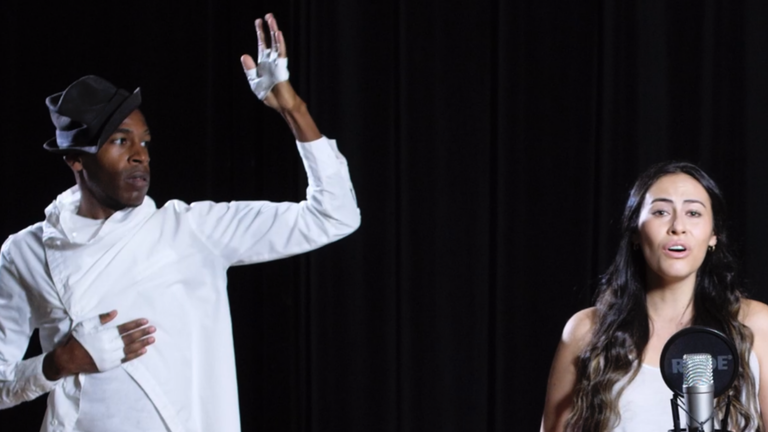
The Details
After offering pilot presentations at a mix of middle and high schools, and the University of Toronto (where both Adridge and Pepper studied), the teams are busy preparing modules to present to school boards at the coming of the academic year in September 2021. The material will be flexible.
“It’s being aware, being sensitive to their curriculum,” Lo says. “It’s so different between provinces.”
“We’re trying to find as many different ways of approaching it,” says Elliott Harder, Provincial Coordinator for Alberta. That can also include other disciplines such as literature, science (looking at the physics of sound, for example,) and theatre. “It’s not just music,” he says. “We keep finding more avenues to do that.”
The presentations last between 7 and 20 minutes, with some examples, and wrap up in activity, typically with on-site mentors to provide support. Future plans include one-on-one mentorships for any students who want to pursue any aspect of opera from singing to stage management.
As Kehler points out, it’s not only about arts and culture – but to educate students on realistic future employment opportunities. “How can we work in the opera industry, but maybe not on the opera stage?”
Feedback from the pilot programmes has been very positive, with many students enthusiastic about the opportunity to discover something they never would have gotten to otherwise. “We were so pleasantly surprised by the response,” Agostino says.
In the end, opera is a glorious art form with a bad rep. “Opera has a big job to undo that perception,” Adridge says. “It’s opera’s job to do that.”
Putting opera in reach of everyone sets up the art form in its rightful place. “Art as a pillar of society,” Adridge says. “[It’s] the ultimate vessel of creativity.”
This article is part of a special blog series featuring writers and creatives from across Canada (and beyond!) with stories that both highlight and celebrate Culture Days’ 2021 theme, RE:IMAGINE. Explore more stories below.
- The Road Less Travelled: Three artists reimagine success and career by Linh S. Nguyễn
- Arts in Motion by Aaron Rothermund
- Reimagining Public Spaces: The Share-It-Square in Portland, Oregon by Laura Puttkamer
- Refresh: How a Year on Instagram Redefined Artistic Communities by Eva Morrison
- RE:PURPOSE by Mike Green
- Reimagine—How the Disability Community Accesses the Arts by Rachel Marks
- Reimagining Community and the Workplace of Theatre by Natércia Napoleão
- Helm Studios flips the for-profit music model to empower artists by Aly Laube
- Curating INUA, Canada’s newest Inuit art exhibit by Carolyn B. Heller
- When Less is More: What Theatre Can Learn From a Year in Slow Motion by Megan Hunt
- RE:ORCHESTRATING Our Future: Advancing Sustainable Development Through The Arts by Ryan Elliot Drew
- RE:DEFINING Normal: A Prescription for a Canadian Cultural Landscape in Recovery by Valerie Sing Turner
- Empathy Machines?: Exploring the Relationship between Immersive Art Technologies and Feeling by Jozef Spiteri and Sunita Nigam
- La poésie pour vivre différemment la pandémie par Jérôme Melançon



